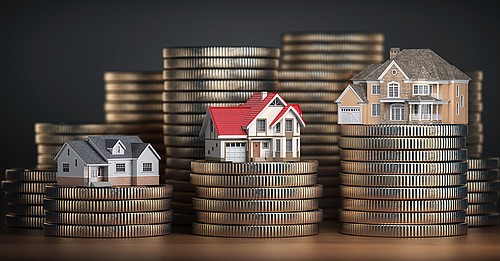What are the added expenses of owning a home?
There’s more to homeownership than the cost of your down payment. Learn about — and prepare — for the true cost of ownership.
The decision to go from renter to homeowner can be exciting. But there’s more to homeownership than your down payment, closing costs, and any other upfront expenses you’ll need to cover — like the cost of moving, and fees to set up or transfer your utilities. To make a financially healthy decision about homeownership, plan ahead for the true cost of ownership before buying your new home.
Know the regular fixed expenses
After purchasing the home, there are ongoing fixed costs, such as:
Mortgage payment (principal and interest)
Private mortgage insurance (if applicable)
Property taxes
Utilities
Homeowners insurance
Homeowners association and other community fees (if applicable)
Though the payments for these items may come at different times (e.g., monthly, quarterly or annually), you should add up the monthly cost of each to understand how they’ll affect you on a day-to-day basis. Make sure to factor these costs — including the monthly amounts you’ll have to save for your annual payments — into your monthly spending plan. Doing this will help you avoid buying a house that you can’t afford, which can happen even if you’ve been approved for the mortgage. You’ll also be able to fully grasp how much you’ll have left over for flexible and discretionary expenses. The Hands on Banking® website has more resources on making a spending plan.
Plan for ongoing maintenance and repairs
Owning a home also means planning for ongoing maintenance and repairs. Homeowners may need to budget 1% to 2% of the purchase price of their home on maintenance each year, though that may vary based on the condition of the home. Remodeling rooms or the entire home would cost considerably more.
It’s always a good idea to put money aside in an emergency fund to protect against surprise situations. But some home maintenance and repairs aren’t really emergencies, because you can count on features eventually reaching the end of their useful life — things like the roof or appliance replacement.
Instead of dipping into your emergency fund for these costs, it’s best to set aside a certain amount of money every month specifically for them. You can use a savings account to save for home-related costs, like repaving your driveway or renovating parts of your house. That way, you can reserve your emergency fund for truly urgent situations, such as medical needs or sudden unemployment.
Buying a home can be both rewarding and challenging. Doing your homework will ensure that homeownership is as stress-free as possible, both during and after the purchase.
More information is available on Hands on Banking, a great place to start educating yourself about these costs.
